 I miss the dot-com boom. The ever rising stock prices. The nonchalant dismissal of basic concepts such as revenue, profit and cost-control. The research analysts allegedly offering companies a “buy” rating in exchange for investment banking business. I miss it all. But thanks to Rodman & Renshaw LLC, we are no longer left to wallow entirely in nostalgia. According to FINRA, Rodman may have resurrected the art of trading favorable research coverage for investment banking business. But is FINRA right about this? After all, the email evidence below suggests that the alleged culprit, research analyst Lewis Boreas Fan, was not seeking investment banking business at all, but instead was seeking only to be loved — by a Chinese manufacturer of mineral-based, heat-resistant products.
I miss the dot-com boom. The ever rising stock prices. The nonchalant dismissal of basic concepts such as revenue, profit and cost-control. The research analysts allegedly offering companies a “buy” rating in exchange for investment banking business. I miss it all. But thanks to Rodman & Renshaw LLC, we are no longer left to wallow entirely in nostalgia. According to FINRA, Rodman may have resurrected the art of trading favorable research coverage for investment banking business. But is FINRA right about this? After all, the email evidence below suggests that the alleged culprit, research analyst Lewis Boreas Fan, was not seeking investment banking business at all, but instead was seeking only to be loved — by a Chinese manufacturer of mineral-based, heat-resistant products.
According to FINRA, Mr. Fan was a Rodman research analyst assigned to cover Chinese companies. On trips to two companies in China, Mr. Fan offered to initiate research coverage in exchange for investment banking business for Rodman. This is unlawful because “[n]o research analyst may participate in efforts to solicit investment banking business.” NASD Rule 2711(c)(4). As proof of this unlawful activity, FINRA quotes emails Mr. Fan sent to Rodman’s CEO, including one that allegedly contains “code words” to conceal the improper conduct. But I’m not entirely convinced. Instead, what I see in the email below is a lonely man yearning to be loved. Before we get to the suspect email, let’s have a refresher on Rule 2711 (Readers who are here solely for the touching love story should skip to section II below).
I. NASD Rule 2711, Research Analysts and Research Reports
![]() Those who survived the dot-com crash may recognize Rule 2711(c)(4) as one of a spate of new prohibitions issued after the crash to regulate research analysts. The basic regulatory problem is simply stated. Broker-dealers often have research analysts who “cover” companies. That is, they analyze a company’s financials and issue reports that usually include a buy, sell, or hold recommendation (or something similar, such as “market outperform,” “market perform” or “neutral”). Broker-dealers also often offer investment banking services, which includes lucrative engagements to assist companies with IPOs and other securities offerings to investors.
Those who survived the dot-com crash may recognize Rule 2711(c)(4) as one of a spate of new prohibitions issued after the crash to regulate research analysts. The basic regulatory problem is simply stated. Broker-dealers often have research analysts who “cover” companies. That is, they analyze a company’s financials and issue reports that usually include a buy, sell, or hold recommendation (or something similar, such as “market outperform,” “market perform” or “neutral”). Broker-dealers also often offer investment banking services, which includes lucrative engagements to assist companies with IPOs and other securities offerings to investors.
During the dot-com boom, many broker-dealers allegedly used their research departments to help generate investment banking business. For example, the broker-dealer could offer to “initiate” research coverage on a new company that was not currently covered in exchange for the company’s investment banking business. Company management typically wants to be covered because  covered companies get far more attention from investors. The broker-dealer could also agree, in-effect, to maintain a “buy” rating on a stock in exchange for investment banking business. There is an obvious conflict of interest here, one that the SEC vigorously addressed in the “Global Analysts Research Settlements” of 2003, in which ten major broker-dealers agreed to pay penalties and disgorgement of $875 million. Also ensnared were the now infamous Jack Grubman and Henry Blodget, who were barred from the industry and paid $15 million and $4 million respectively. Most irritating to the regulators was evidence that Mr. Grubman and Mr. Blodget issued research reports on Internet companies that expressed views inconsistent with their privately expressed negative views — allegedly to keep the companies, and thus the investment bankers, happy (investors who relied on the reports were allegedly not as happy). As is usual in such settlements, the companies and the individuals neither admitted nor denied the allegations.
covered companies get far more attention from investors. The broker-dealer could also agree, in-effect, to maintain a “buy” rating on a stock in exchange for investment banking business. There is an obvious conflict of interest here, one that the SEC vigorously addressed in the “Global Analysts Research Settlements” of 2003, in which ten major broker-dealers agreed to pay penalties and disgorgement of $875 million. Also ensnared were the now infamous Jack Grubman and Henry Blodget, who were barred from the industry and paid $15 million and $4 million respectively. Most irritating to the regulators was evidence that Mr. Grubman and Mr. Blodget issued research reports on Internet companies that expressed views inconsistent with their privately expressed negative views — allegedly to keep the companies, and thus the investment bankers, happy (investors who relied on the reports were allegedly not as happy). As is usual in such settlements, the companies and the individuals neither admitted nor denied the allegations.
Anyway, as a result of this (alleged) chicanery, broker-dealers were saddled with a masterpiece of micromanagement: NASD Rule 2711. This rule is exhaustive in its attempts to prevent research analysts from being co-opted by investment bankers. It does not, however, eliminate the conflicts of interest. Instead, its many prohibitions amount to a request that the parties not succumb to the siren song of conflicts of interest, despite the potential profitability.
A decent summary of this rule would put you to sleep. So here’s just a taste of its goodness: the rule (1) prohibits analysts from soliciting investment banking business; (2) requires that analyst compensation be approved annually by a board committee and specifies the review criteria (including productivity, quality, the correlation between the recommendations and the stock performance, and the ratings received from clients, the sales force, and others but not from investment bankers); (3) prohibits, in tedious detail, the publishing of reports during various periods of time following various types of investment banking transactions; (4) requires compliance pre-approval before an analysts may trade in covered stocks; (5) requires the analyst to disclose in reports and in public appearances any compensation received from the subject company if any of a bewildering set of circumstances are met. To cite but one example, disclosure is required:
if (1) as of the end of the month immediately preceding the date of publication of the research report (or the end of the second most recent month if the publication date is less than 30 calendar days after the end of the most recent month) or (2) to the extent the research analyst or an employee of the member with the ability to influence the substance of the research knows: (a) the member received any compensation for products or services other than investment banking services from the subject company in the past 12 months; or (b) the subject company currently is, or during the 12-month period preceding the date of distribution of the research report was, a client of the member. In such cases, the member also must disclose the types of services provided to the subject company. For purposes of this Rule 2711(h)(2), the types of services provided to the subject company shall be described as investment banking services, non-investment banking securities-related services, and non-securities services.
 So FINRA believes that Mr. Fan the research analyst wrote an email to Rodman’s CEO containing “code words” designed to conceal the fact that he was soliciting investment banking business. As mentioned, I see in this email nothing more than a man in love. But you be the judge. Writing about a Chinese company, Mr. Fan wrote:
So FINRA believes that Mr. Fan the research analyst wrote an email to Rodman’s CEO containing “code words” designed to conceal the fact that he was soliciting investment banking business. As mentioned, I see in this email nothing more than a man in love. But you be the judge. Writing about a Chinese company, Mr. Fan wrote:I have just reached out to the management. Here is where things stand. As of right now, they want to divide their love into two: 10 dollars of popcorn for us and 10 dollars of soda for the other guy, on two separate movie dates. But the other guy is providing much better accommodation to them than we are. The management is particularly upset that we are imposing much stricter criteria to them than we did to [another company], such as a divorce settlement. They feel it’s discriminatory and they feel insulted. In fact, our love was so tough that their CEO was leaning towards giving his whole love to the other guy. But the other members of the management have persuaded him to share his love. But their opinion is: if we want to even have 50 percent of the love, we’ve got to sweeten the pot, as the other guy is really showing them a lot of love.
One half of me is yours, the other half yours,Mine own, I would say;but if mine, then yours,And so all yours.(Shakespeare, The Merchant of Venice).
Love looks not with the eyes, but with the mind,And therefore is winged Cupid painted blindwith mineral-based, heat-resistant products.(A Midsummer Night’s Dream)
Before you race to the scorned lover’s defense, however, consider further that after this email, Mr. Fan initiated coverage of the Chinese company with a “Market Outperform rating,” and thereafter, the company announced a $10 million registered direct offering for which Rodman was the exclusive placement agent. I’m sure you will agree that this leaves us with an ambiguous enigma, as is so often the case with love. And though we will try, we may never learn the true story because Mr. Fan settled with FINRA, agreeing to a thirty-business-day suspension and a $10,000 fine, and Rodman agreed to a $315,000 fine and to hire an independent consultant to shore up its analyst compliance. Oh the trouble that love can bring! See e.g., Romeo and Juliet (especially the end). We can at least thank Mr. Fan and Rodman for resurrecting fond memories of a great financial era.

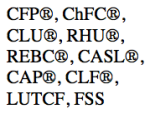
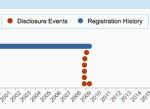





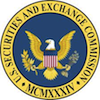





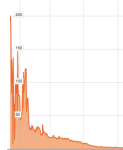
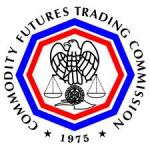








What do you think?